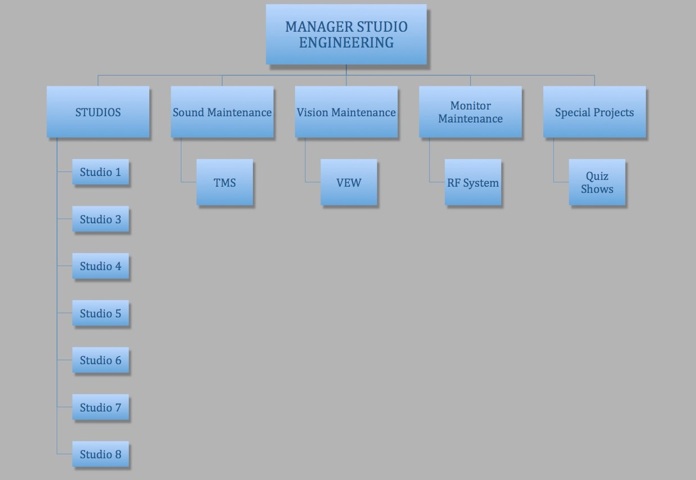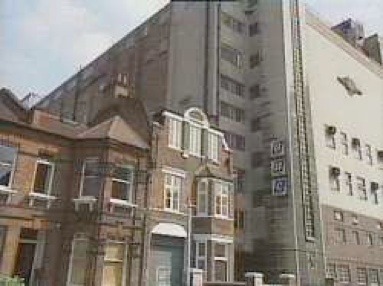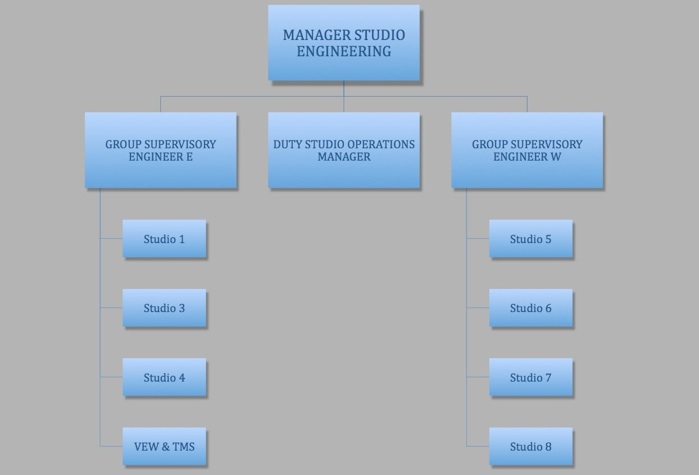Studio Engineering (London)

FORMATION
When I joined Studio Engineering in 1984 it was a large department with a lot of smaller sections. The staffing regimes varied considerably from permanent day workers, through long day workers (who worked fewer days) to full AP Shift pattern workers. As the years progressed I moved on but kept in touch and saw many colleagues resign or be made redundant. Sadly, as I remember, the department suffered a lot of organisational politics either from external sources or, occasionally, from within.
It was a department that was very easy to underestimate. All staff were fully qualified Engineers with either degree or a lot of BBC Engineering Training Standing Instructions training or both. The foremost job was for Studio Engineers to prepare studios for recording. This might be weeks ahead of a particular programme or series arriving or basic rigging on the day. However no show was alike and many actually needed quite a lot of ‘minding’ throughout their period of occupation. The fully operational task during recording was to ensure incoming external sources were good and to fully colour balance each of the local cameras. For reasons of cost not every studio had everything installed so much was booked and moved to where it was required. However that took its toll..
The reliability of much of the equipment of the day was not the best and downtimes had the potential to completely stop recordings therefore the onus was to keep things going come what may. And come it did. Cameras, synchronisers, digital video effects didn’t like being transported round the corridors of power. And when things were working they may not stay that way. For instance I remember the washing machines flooding into a couple of studios from the Wardrobe Department on the third floor. I remember when everyone had gone to lunch that TC8‘s Lighting Console slowly faded up every lamp causing huge amounts of power to be quietly consumed which took out much of W London including Hammersmith Hospital. I remember the colorimentry of just about anything was temperature and age (and even programme) dependent. I remember forever trying to get ventilation plant staff to keep the equipment cold and the people in the control rooms warm but fried or freezing could so often be the order of the day. And, you guessed it, this changed from during the day and from day to day depending on the mix of air coming in from outside. And don’t mention children or animals !
SIGNIFICANT EVENTS
1960’s
1970’s
1980’s
Withdrawl from Lime Grove (News staff remained)
Closure of Greenwood
Closure of Video Effects Workshop
Closure of TVT
Closure of TMS
1990’s
Opening of TC Zero
Opening of TC9
Installation of VTRs in studios
TSPR grouped into BBC Resources
Formation & Departments
1970’s
Main Block Studios1-8 -Shift 1 and Shift 2
Vision Maintenance -Days and shift. Under: JohnWest
Sound Maintenance -Days and shift. Under: Ray Dawson
Monitor Maintenance -Days and shift. Under: Bob Hawes
Special Projects -Days and shift. Under Ken Godden
Lime Grove
TV Theatre
Greenwood Theatre

FAMILY TREES
1990’s
My recollection of the actual structure is hazy but I seem to remember something like this:
1980’s
My recollection of the actual structure is hazy but I seem to remember something like this:

(For an example of a Duty Schedule click the family tree)





Lime Grove
Monthly Reports were sent to Manager Studio Engineering so that trends may be recognised. Here are two examples written by Jock MacDiarmid:

Disclaimer
Whilst some care has been taken to check externally linked websites no responsibility is offered nor implied for the suitability, legality or reliability of content therein.
